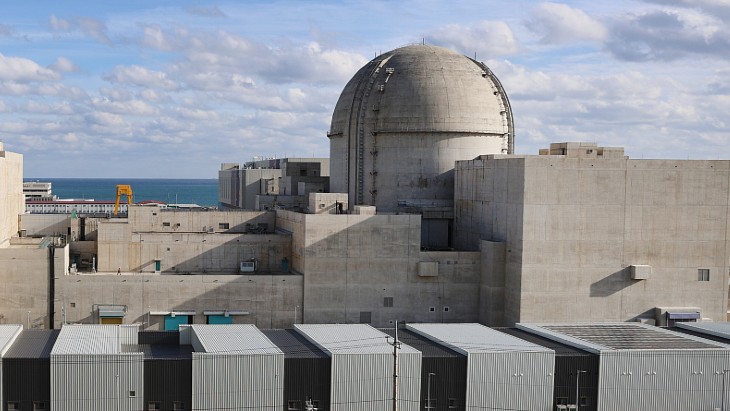Up to 11,000 jobs are under threat as EOn moves to meet the challenges posed by Germany's new nuclear policy. Only yesterday another utility, RWE, announced the shutdowns had so far cost it €900 million ($1.3 billion).
Markets have now heard from all four of the utilities operating nuclear power plants in Germany. The other two, Vattenfall and EnBW, had already announced a write down of €1.1 billion ($1.6 billion) and a loss of 'over €600 million' ($850 million) respectively. Yesterday RWE added €900 million to this and EOn's €1.7 billion ($2.4 billion) has now pushed to total to exceed €4.3 billion ($6.0 billion) for the first reporting period alone.
It was on 15 March, just four days into the Fukushima accident, that Chancellor Angela Merkel asked the utilities to shut eight nuclear power reactors for a three month period. The government has since decided that none of these may restart, while remaining reactors will close in a sequence ending in 2022. The hope is to replace most of this lost generation capacity with an exponential scale-up of renewables, paid for with feed-in tarriffs as well as by a special tax on nuclear fuel.
The CEO of EOn, Johannes Teyssen, told shareholders of "sharply lower" profitability as a result, with income dropping by 71% and gross earnings by 45% compared to the first six months of 2010. "This dramatic deterioration of our earnings primarily reflects the German government's decisions regarding the phaseout of nuclear energy... This had an adverse effect of €1.7 billion ($2.4 billion) in the second quarter alone."
Johannes Teyssen |
EnBW has already started proceedings concerning the nuclear fuel tax, which it was the first to pay when it refuelled the Philipsburg 2 reactor. Paying €145 ($205) to the government for every gram of uranium added up to "nine digits" - at least €100 million ($141 million). Sweden's state-owned Vattenfall has also said it expects full compensation for its costs.
Investment down, divestment up
RWE said in its first-half results yesterday that it had paid some €200 million ($282 million) in fuel taxes, although it didn't identify to which reactors that pertained. The new situation in Germany will "hamper our earnings significantly," said CEO Jürgen Grossman, noting the €900 million impact of the shutdowns.
Factors resulting in that figure were that RWE had already sold generation from the Biblis plant, and therefore had to meet customer commitments using more expensive generation units instead. It also wrote off some stocks of nuclear fuel elements, which will probably now be unused. Provisions also for the shutting down and dismantling of its plants were increased.
It's a gas
With nuclear generation slashed by the shutdown, supplies of fossil fuels have become vital. RWE is in the middle of a three-month negotiation period with Russia's Gazprom on potentially forming a strategic partnership. Meanwhile, EOn is taking the gas supplier through an international arbitration process having failed to reach agreements on long-term supply. |
As part of its coping strategy, RWE is to accelerate asset sales, aiming to divest an extra €3 billion ($4.2 billion) by 2013. Its options to reach a total of €11 billion ($15.6 billion) in sales include several coal and gas plants, the NET4GAS long-distance network operator, a stake in Berlinwasser and the subsidiary RWE Dea. At the same time, RWE will also limit capital expenditure to €4 billion ($5.6 billion) to 2013, some €1.5 billion ($2.1 billion) less than previously planned.
Jobs
EOn warned that it intended to take a "head-on" approach to tackling its new "business challenges", which it said were primarily imposed by the new nuclear policy. With little influence on energy markets, Teyssen said the firm must look within itself to save money. He said that reduction in non-personnel costs would not achieve enough savings and 9000-11,000 jobs could be affected in the medium-term.
Researched and written
by World Nuclear News




_72306.jpg)


_49562.jpg)





